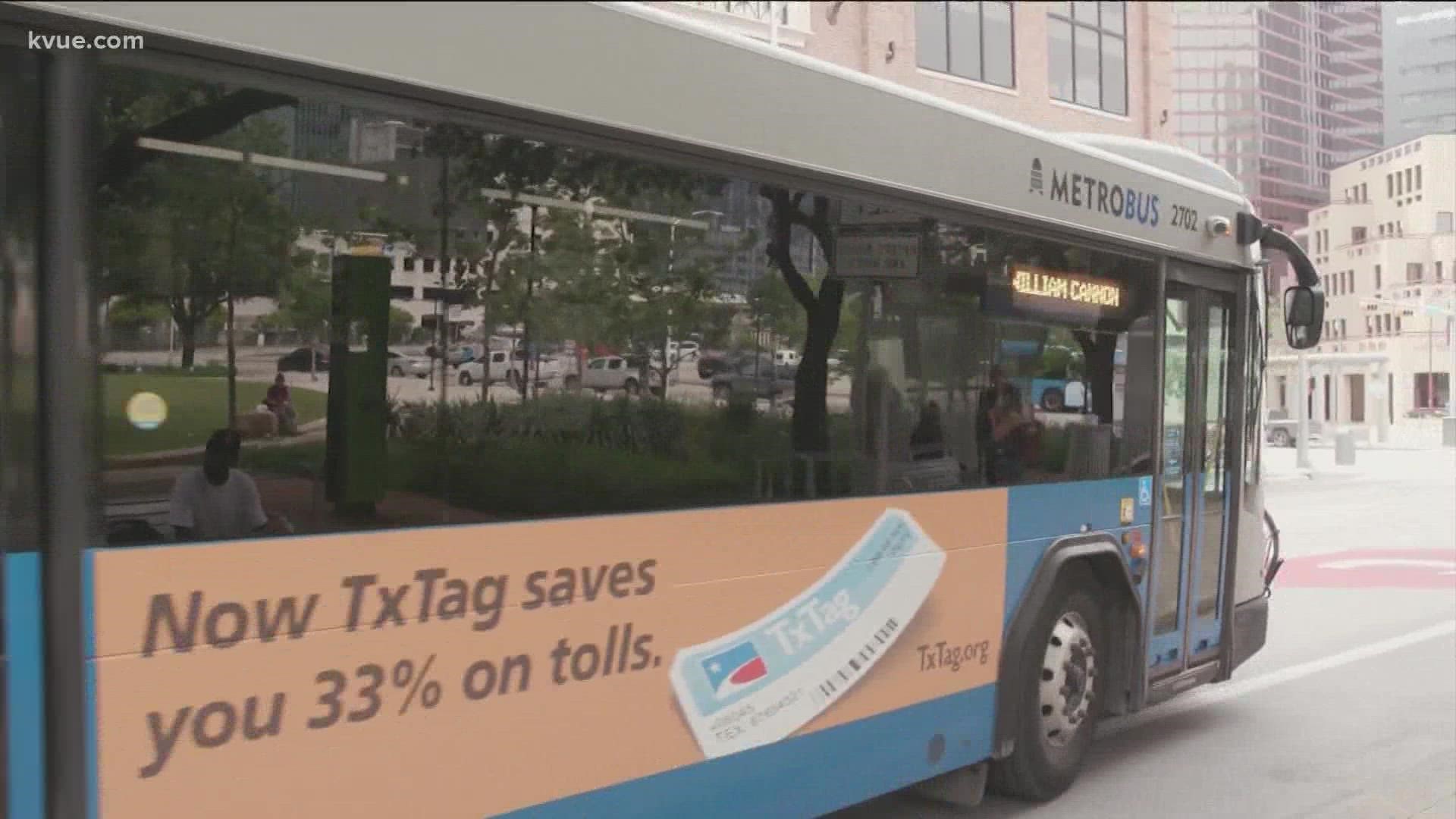LEANDER, Texas — The booming suburb north of Austin that was named America’s fastest-growing city in 2020 could end its partnership with Capital Metro, the region’s public transportation authority.
On Thursday night, the Leander City Council was set to review draft ballot language that would ask voters if the City should end the partnership. This comes after a study conducted by a contractor highlighted low ridership numbers and limitations to the current service offered by CapMetro.
Council members could have decided to call a special election later this month, which would put the issue to voters in May. Instead of calling for the special election to put the issue before voters, the council chose to work on another deal with CapMetro in an effort to boost rider numbers.
Council members said they would bring up the potential election again at their next meeting.
As members of CapMetro, the City of Leander pays one penny of every dollar spent in the city. In 2021, Leander’s sales tax revenue generated $9.8 million for the transit agency.
Leander has paid 1 cent out of the 2 cents collected in local sales tax since 1985 when the city joined CapMetro. Based on current population and business growth projections, Leander’s study found it could pay CapMetro double what it paid in 2021 – $18.4 million by 2032.
“It is financially challenging with high-growth cities to have that much sales tax going to one use – singular use, such as transit,” City Manager Rick Beverlin said. “The regional growth rate is outstripping everything else. The growth in transit usage was not. And so, it does come down to dollars at a certain point. Are you spending your dollars the most effectively?”
The ballot language under consideration would include a second measure, which could let voters decide how to spend the penny in sales tax revenue if it’s not going to CapMetro. The other options include funding an economic development corporation or a local sales and use tax.
CapMetro leaders said in a statement that they are committed to serving the residents of Leander who depend on and benefit from the agency’s services, adding that transit connections like the ones offered help connect communities in a region that struggles with affordable housing.
CapMetro’s ridership numbers system-wide have been down since the pandemic forced work and life changes for millions of Americans. Before March 2020, the transit agency saw increasing ridership.
CapMetro released the following statement:
“The consultant used by the city of Leander only provided data for the month of October 2021. Since the start of the pandemic, systemwide ridership has declined following 17 consecutive months of ridership growth. Like other public services, temporary decreases in use do not mean that the service isn't meeting the needs of the community. Similar to a park, road, or library, high quality Capital Metro bus and rail services are available when residents need them. The agency expects ridership to continue to rebound, especially as Leander continues to grow and over the next decade, Project Connect will increase Leander's regional connectivity. That includes frequent and reliable trips from the city of Leander to Q2 stadium, Downtown Austin, connections to the airport and so much more.”
Under state law, the City of Leander would have to pay to exit the current partnership with CapMetro. The City’s estimated net financial obligation, as of October, is $33,718,296. That would be paid back to CapMetro over the next three years based on the City’s future projected sales tax generation, Leander’s chief of staff Michael Neu said in an email to KVUE.
According to a spokesperson for CapMetro, if voters chose to leave the partnership, transit services would be suspended the day after the election.
Beverlin said the City could opt to contract transit services, whether from CapMetro or another provider, to maintain the continuity of service for residents.
Other Central Texas cities that have a partnership with CapMetro include Austin, Jonestown, Lago Vista, Manor, Point Venture, San Leanna and parts of Travis and Williamson counties.
Neu said Leander's cost for transit services is "significantly higher" than other Austin-area cities.
PEOPLE ARE ALSO READING:

